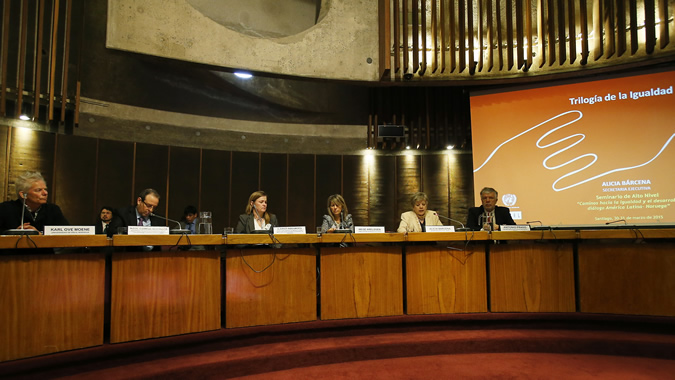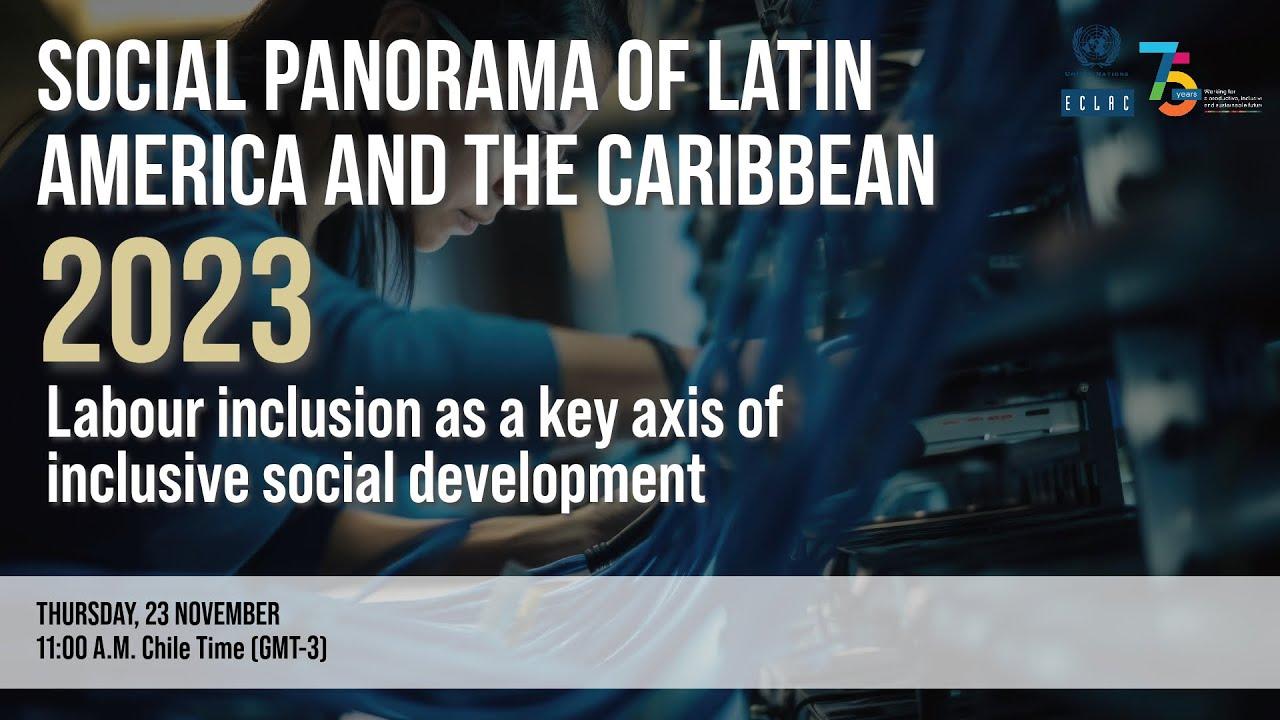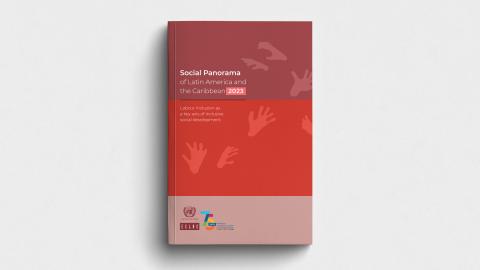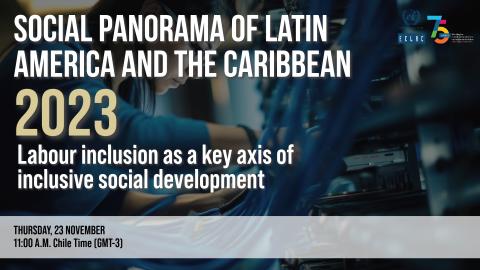video
Equality and structural change with environmental sustainability must be at the center of development policies, said Alicia Bárcena, Executive Secretary of the Economic Commission for Latin America and the Caribbean (ECLAC), and Hege Araldsen, Norwegian Ambassador to Chile, today during the opening of a high-level seminar held March 30-31 at the United Nations regional organization’s headquarters.
The seminar Paths Towards Equality and Development: Latin America-Norway Dialogue, in which Raúl García-Buchaca, Director of ECLAC’s Program Planning and Operations Division also participated, represents the conclusion of the first stage of a cooperation agreement signed in 2013 between this organization and the Norwegian government. The pact contemplates four priority areas: governance of natural resources, gender equality, employment and social protection.
“Economic growth should not be at odds with equality and environmental sustainability,” ECLAC’s Executive Secretary said during the opening panel.
Alicia Bárcena presented the Equality Trilogy, which includes the documents Time for Equality: Closing Gaps, Opening Trails (2010), Structural Change for Equality: An Integrated Approach to Development (2012) and Compacts for Equality: Towards a Sustainable Future (2014). This trilogy conceives equality with ownership of rights and it is based on the premise that it is necessary to be equal to grow and to grow to be equal.
The Executive Secretary said the region must invest in human capacities and change consumption and production patterns through greater governance of natural resources, exports diversification and progressive tax structure, among other factors.
The United Nations senior official underlined that an industrial policy generating employment with rights and an active development banking are also necessary, as well as mechanisms of support for SMEs, for science and technology development and the strengthening of environmental institutions. All together this will achieve a new state-market-society equation dedicated to agreements between the different actors, including a global pact for the post-2015 agenda.
“ECLAC has placed equality and structural change at the center of debate in development matters,” said Hege Araldsen. The Ambassador expressed her satisfaction at the approval of Norway’s request as an ECLAC member state this past March 20.
On his part, Oslo University professor Karl Ove Moene explained at a dissertation on the Nordic equality model that real competition does not consist of reducing costs but of creating innovation spaces that enable new technologies, markets and forms of organization. “This is the process of structural change in capitalism,” he stressed.
Moene also underscored that a high tax burden is sustainable when there is an efficient social protection system and when investment in education and health increases workers’ productivity.



